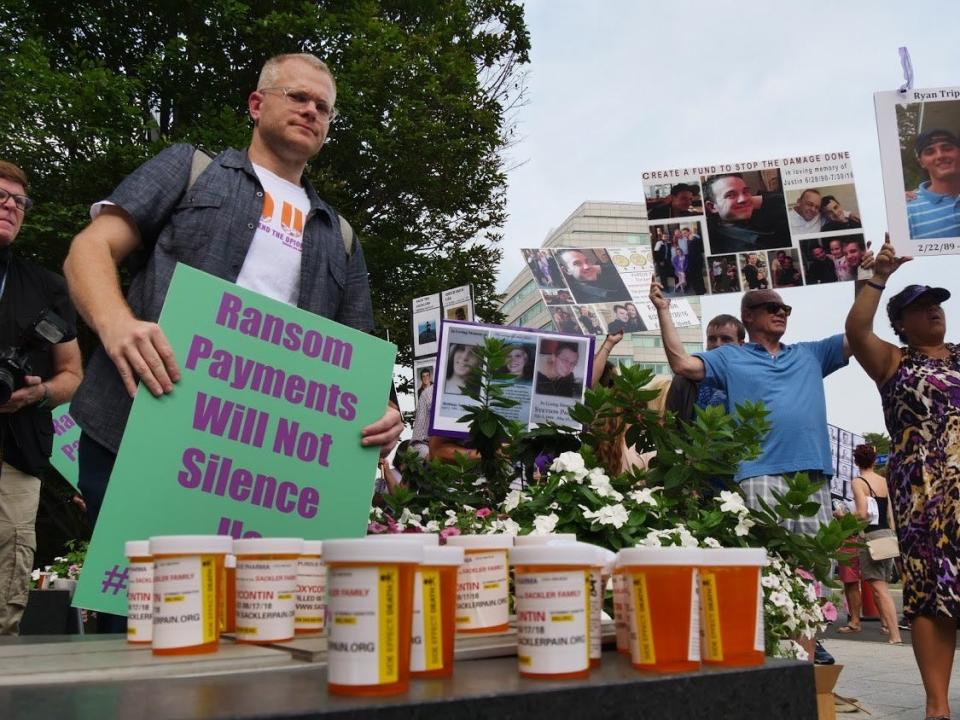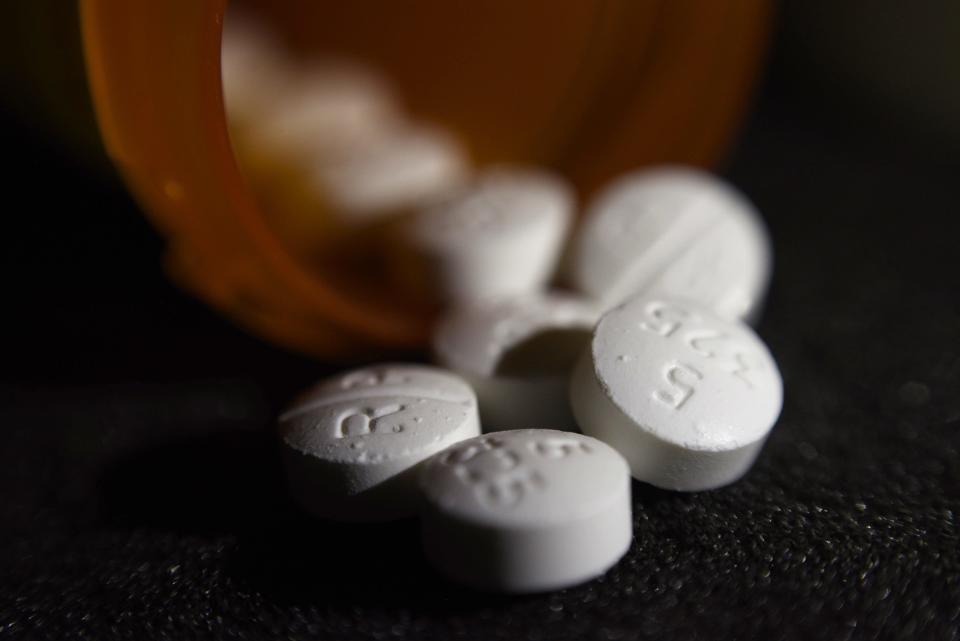Trump's border wall won't solve addiction crisis — but finally targeting big pharma can
When President Donald Trump delivers his State of the Union address Tuesday night, he will likely make the argument that a border wall is necessary to stop the flow of drug dealers and cartel members from crossing our southern border. I'll be attending that address to listen. But in the fight against our nation's opioid epidemic, immigrants are not the boogeymen whom we need to protect ourselves from.
Cartels have been synonymous with the illegal drug trade originating from Southern and Central America. About 800,000 federal employees did not receive their paychecks because of the president’s determination that a border wall be built. But the drug trade that underlies part of the rationale for a wall is in fact a perilous red herring. The most dangerous drug trade of all isn’t south of our border. It’s right in our own backyard.
Over the past two decades, I have seen firsthand the consequences of our crisis. I began my journey into addiction not with an illegal herb or powder from the jungles of Colombia, but from labs found in Connecticut and Ohio, sold by high-heeled pharmaceutical reps, prescribed by my doctors and paid for by my insurance company.
Read more commentary:
I didn't want heavy painkillers after surgery — but my hospital pushed opioids on me anyway
I lost a sister and a brother to opioid addiction. I nearly lost my own life, too.
My friend overdosed in his recovery home, and no one was held accountable. That's about to change.
After 10 years addicted to opioids, I was finally able to get help, relying on public services such as Medicaid. I have watched friends die from opioid addiction, making me all the more determined to hold manufacturers such as Purdue Pharma accountable and promote ways to end the crisis, providing people with on-demand services, such as harm reduction, evidence-based prevention, treatment and recovery supports.
With the president’s recent decision to reopen the government for three weeks in exchange for a bipartisan commission on border security, we have an obligation to highlight the truth around the opioid crisis and to identify the real culprits behind its devastation.
Border wall debate is dangerous distraction
President Trump is presenting a false narrative about the opioid crisis and the need for a border wall because most narcotics cross the border at U.S. ports of entry, not where a border wall would be constructed. In fact, Trump’s own commission on the opioid crisis estimates that 80 percent of new heroin users are getting hooked largely because they were addicted to prescription pain medications.
The drug dealer America should be concerned about isn’t a drug lord from Mexico. It is an American company that allegedly worked overtime to mislead the public about the dangers of their product and make a fortune at the cost of American lives: Purdue Pharma and members of the Sackler family who own the company.

According to court filings released last month about the origins of the now-infamous painkiller OxyContin, Richard Sackler, who served as Purdue Pharma’s president from 1999 to 2003, prophesied shortly after the drug was approved that the debut of his new product would “be followed by a blizzard of prescriptions that will bury the competition.”
After there were concerns about the risk of addiction and overdoses from the drug, Sackler responded in a 2001 email, “We have to hammer on the abusers in every way possible. They are the culprits and the problem. They are reckless criminals.”
In 2007, Purdue Pharma was able to reach a legal settlement with the federal government, even though a 2006 Department of Justice memorandum concluded that the company was aware of OxyContin’s growing abuse soon after it came onto the market.
Unfortunately, our government agencies have largely failed to control this crisis, as the Food Drug Administration approves possibly life-threatening opioid prescriptions for the market, just as they did more than two decades ago with OxyContin (which is still available to this day).

Dr. Raeford Brown, who chairs the committee of specialists advising the agency on whether to approve new opioid painkillers, told The Guardian last month that he no longer has confidence that the FDA is taking the opioid epidemic seriously or that it has learned any lessons from our opioid policy. He cites recent FDA approval of Dsuvia, which is more potent than fentanyl.
Bring the fight to the American drug lords
Those of us who’ve survived the crisis and are now fighting for accountability know the truth: We cannot fight the opioid crisis by only looking beyond the border. We must also fight it here at home. Trump’s $5.7 billion price tag for his wall should instead help sustain and expand recovery services. To use the opioid crisis as a case for the border wall is not only a false narrative; it’s a dangerous one.
On an average day in the USA, 130 Americans die from an opioid overdose.
In fact, according to the National Safety Council, Americans are now more likely to die of an opioid overdose than in a car crash. And yet pharmaceutical companies such as Purdue continue to produce and profit from products that fueled the epidemic. In order to save American lives, the sole focus can't just be immigration. We also need to stop America’s homegrown big pharma cartel.
I am one of the lucky ones; I survived. But I recognize that without the federal government’s support, many more will die. President Trump has an opportunity to highlight the real culprits behind this crisis. Because holding the right people responsible will determine whether this epidemic will ever end.
Ryan Hampton is a guest of Rep. Judy Chu, D-Calif., at this year's State of the Union address. He is in recovery from heroin addiction, author of "American Fix: Inside the Opioid Addiction Crisis — and How to End It" and founder of the nonprofit advocacy organization The Voices Project.
You can read diverse opinions from our Board of Contributors and other writers on the Opinion front page, on Twitter @usatodayopinion and in our daily Opinion newsletter. To respond to a column, submit a comment to letters@usatoday.com.
This article originally appeared on USA TODAY: Opioid epidemic: Blame big pharma, not Mexican drug lords, for crisis
